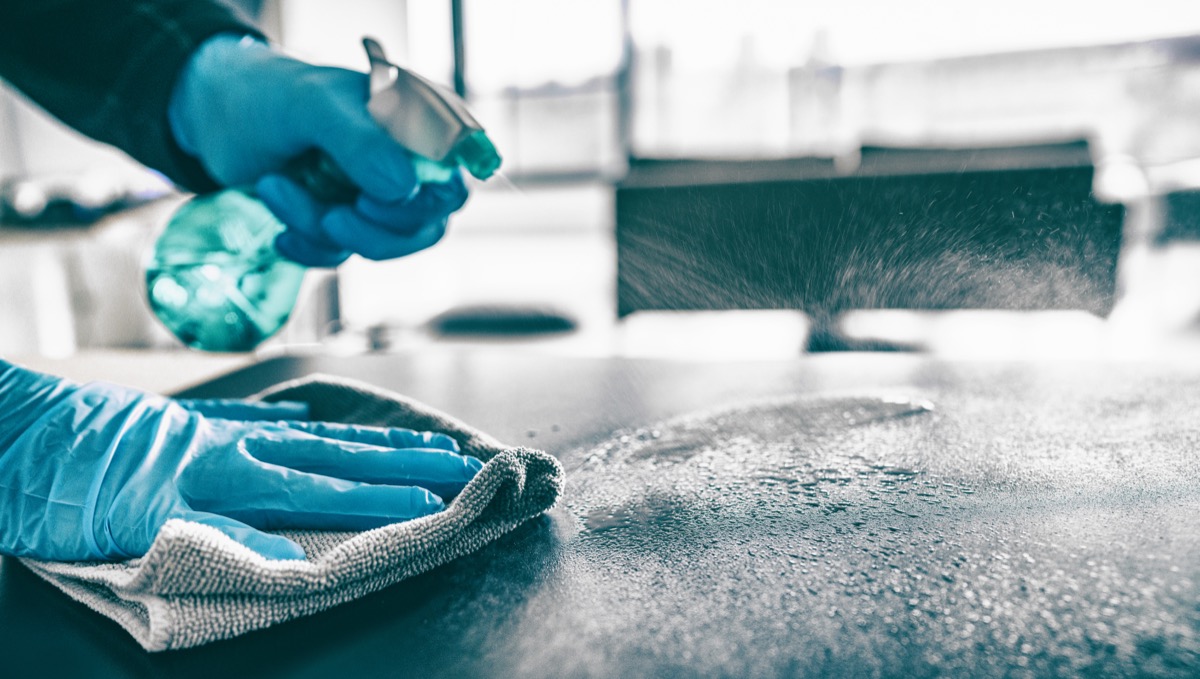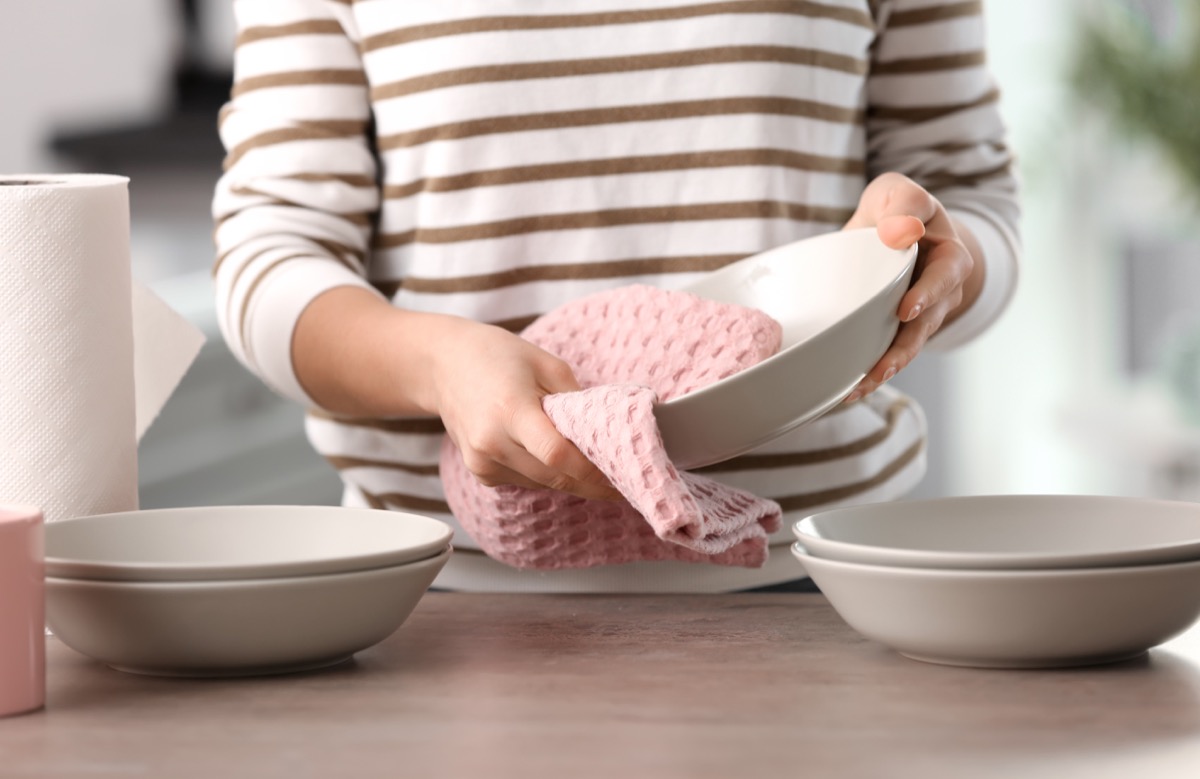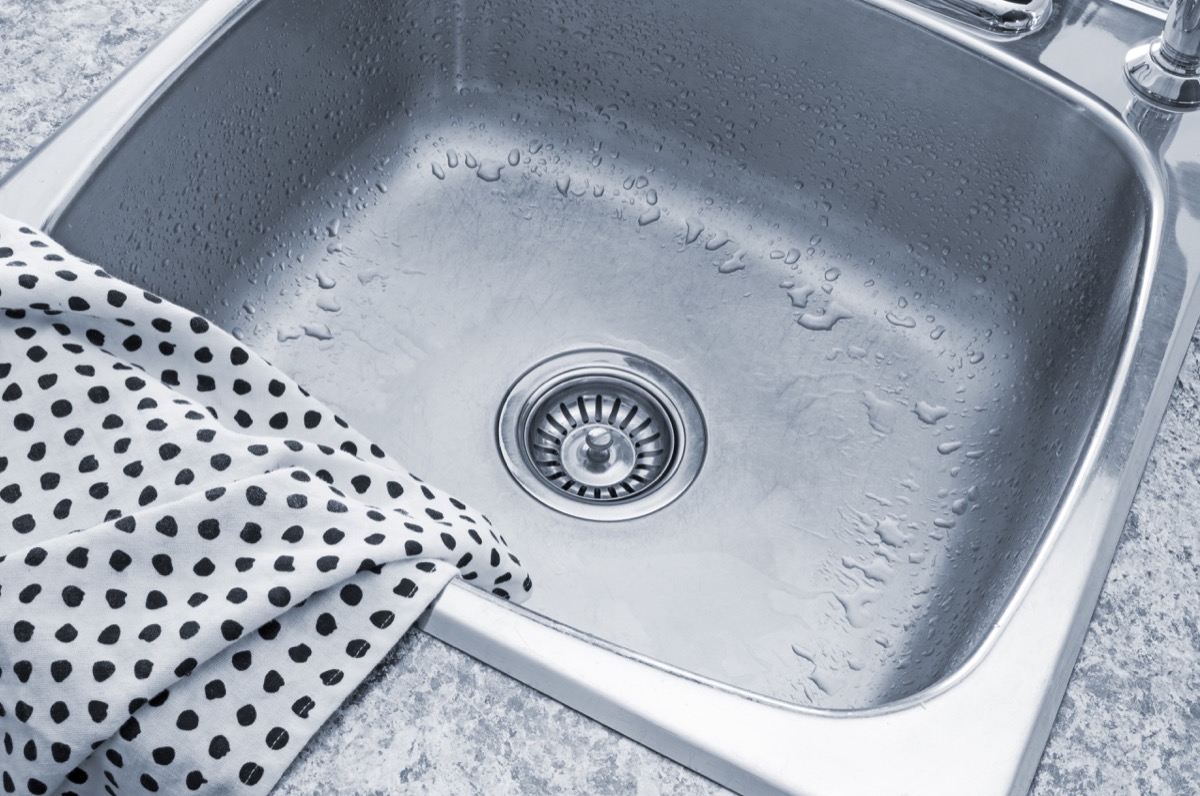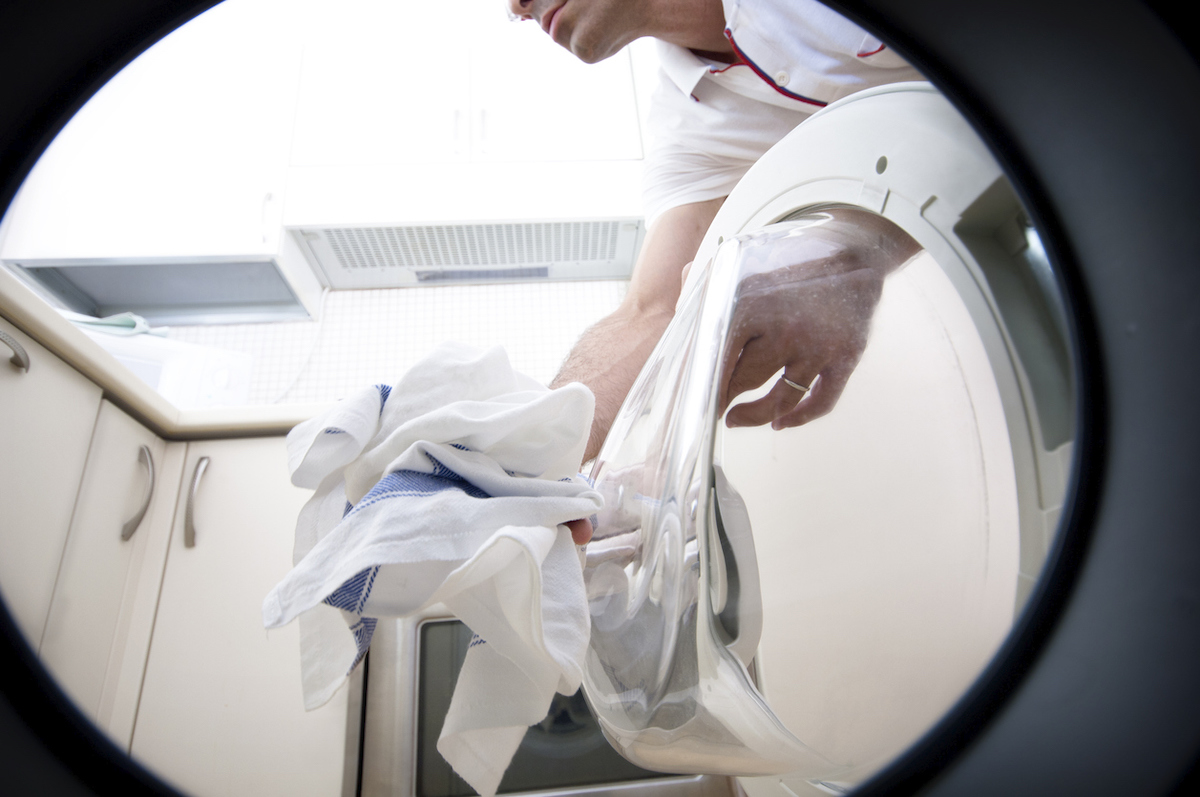This One Thing in Your Kitchen Is a "Haven for Bacteria," Expert Says
"The product can provide a flourishing environment for bacteria," says an infectious disease expert.

Your kitchen is probably one of the most frequently used rooms in your home, whether you're in there cooking, eating, doing homework, or entertaining friends. Regardless of what you're doing in your kitchen, its frequent use also requires tons of cleaning, like wiping down crumbs and spills on countertops. But there's one item in your kitchen you may not suspect needs to be cleaned, even though it's truly filthy. A new survey has found that people in the U.S. are not cleaning this one thing nearly as much as they need to, resulting in it becoming a "haven for bacteria," according to an infectious disease expert. Read on to find out what you need to clean more often, and for more cleaning advice, check out The One Cleaning Product That's Ruining Your Countertops, Experts Warn.
An infectious disease expert warns dishcloths in your kitchen are a "haven for bacteria."

Procter & Gamble's Bounty Paper Towels recently looked into at-home cleaning behaviors among people across the U.S. and found only 11 percent of respondents replace or clean their kitchen hand towel more than once a week. A survey, conducted by OnePoll for Bounty, looked into 2,000 Americans' cleaning habits throughout the COVID pandemic and published the findings in Mach. Despite 71 percent of respondents admitting to adding more than three hours of cleaning each week during the pandemic, more than half of them said they used unclean dish towels a handful of times throughout the week.
"Used dishcloths can be a haven for bacteria," Jessica Malaty Rivera, an infectious disease expert, said in a statement released with the survey. "Because they are multipurpose and often go unwashed between uses, the wet and absorbent nature of the product can provide a flourishing environment for bacteria to grow."
And for the ways you shouldn't be cleaning up at home, here are 23 Common Cleaning Mistakes That Experts Say Actually Ruin Your Home.
Dishcloths often collect coliform bacteria, E. coli, and Salmonella, studies have found.

A 2014 study published in Food Protection Trends analyzed germs on 82 dishcloths from households across the U.S. and Canada. They found that coliform bacteria—which is found in the feces of all warm-blooded animals and humans—was present in nearly nine out of 10 kitchen hand towels. And one in four towels contained E. coli present. "The presence of E. coli was related to the frequency of washing," the authors wrote. Additionally, earlier research found that Salmonella was found on almost 14 percent of dishcloths.
The study authors also caution that "coliforms, E. coli, and Salmonella can survive the drying of kitchen cleaning cloths and regrow if the cloth becomes soiled again."
In a 2018 study from the University of Mauritius presented at the American Society for Microbiology meeting, researchers found even more bacteria present on dish towels. Forty-nine percent of the 100 kitchen towels collected for the research displayed some form of bacterial growth—36.7 percent grew coliforms, 36.7 percent contained Enterococcus, 30.6 percent tested positive for Pseudomonas, 28.6 percent grew Bacillus, 14.3 percent contained S. aureus, 4.1 percent tested positive for Proteus, and 2 percent had coagulase-negative Staphylococcus. Additionally, there was more bacteria on towels that were used for multiple things, like drying hands and wiping down counters.
And for another item in your kitchen to be wary of, find out why The USDA Just Issued a Salmonella Warning for This Kind of Meat.
Almost half of people report using their dish towel at least five times before washing it.

Even though Bounty found 18 percent of respondents are aware kitchen dish towels are one of the dirtiest household items, 58 percent admitted to using the household item to clean up messes or spills. In fact, the company learned about 41 percent of respondents use their dish towel more than five times before washing it.
And for more up-to-date health tips delivered straight to your inbox, sign up for our daily newsletter.
But you should be washing your dish towels at least every day.

The U.S. Department of Agriculture's (USDA) Food Safety and Inspection Service (FSIS) says dish towels are a major source of cross contamination in the kitchen, which means they need to be washed and changed frequently.
"I recommend changing kitchen towels daily," home cleaning expert Becky Rapinchuk, founder of Clean Mama, told Eat This Not That. "This habit is essential for keeping food-borne pathogens and other bacteria away. My routine is to put out new dish and hand towels after dinner is cleaned up and after the counters are wiped down."
According to the Institute of Agriculture and Natural Resources at the University of Nebraska, Lincoln, "it does depend on how often the towel is used and what it is used for in the kitchen. For example, if a kitchen towel was used to clean up raw meat, poultry, or seafood juices, then it should go immediately into the laundry and a clean one should be used."
The FSIS suggests washing your kitchen towels on hot heat in your washing machine and making sure they're completely dry on a high setting in your dryer. Rapinchuk also says to "let towels dry before putting them in a wash basket, and wash them separately from anything else."
And for tips on how to get your home squeaky clean quickly, here are 20 Genius Tricks That Will Cut Your Cleaning Time in Half.





















